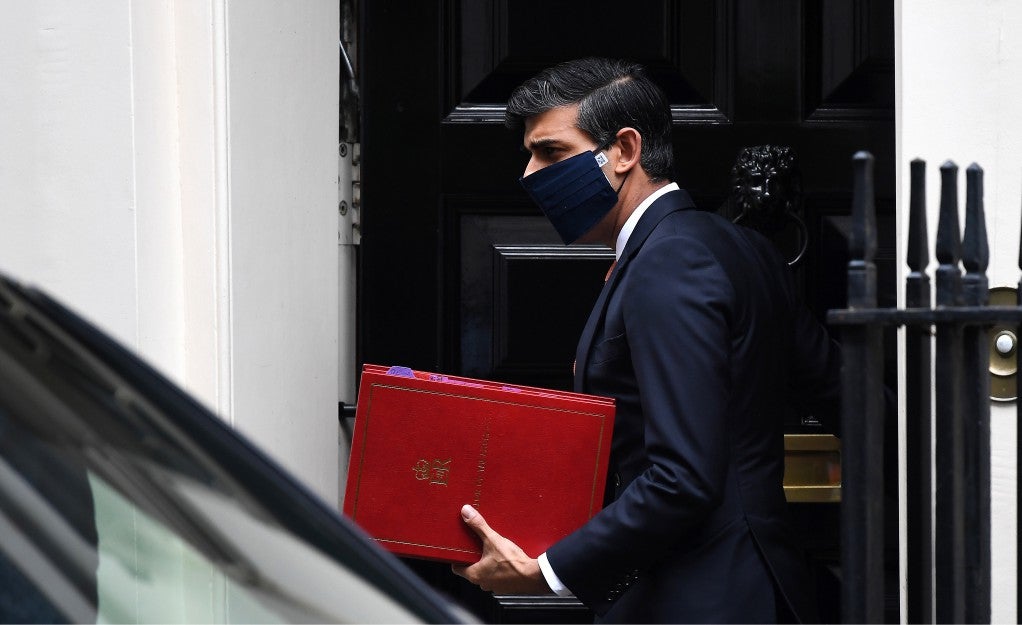The attacks on Rishi Sunak show that Labour and the left know he’s a threat – but they haven’t hurt him yet
The criticism of the chancellor’s blind trust is less than wounding, says John Rentoul


Abena Oppong-Asare is a rising Labour star. Only elected last year, she was promoted to the front bench two weeks ago, as shadow exchequer secretary, the junior member of Anneliese Dodds’s Treasury team, when Dan Carden resigned after voting against the “spy cops” bill.
Oppong-Asare went straight to work, being quoted in The Times on Monday about the chancellor’s blind trust: “Rishi Sunak needs to be completely transparent with the public about whether any of the funds he invested in a blind trust are held in offshore tax havens.”
It was a direct hit, drawing attention to the chancellor’s wealth, and suggesting without actually saying so that there is something not quite right about his personal finances.
It looks as if Keir Starmer knows there is a good chance that his opponent at the next election will not be the bumbling Boris Johnson, but his more formidable neighbour, currently the most popular politician in Britain. Thus there is a Labour operation to try to take the chancellor down.
It is striking that Dodds, having initially been supportive of Sunak’s big-spending intervention to keep the economy afloat, and having been briefed by him on privy council terms, adopted a more hostile tone as his stock in the opinion polls rose.
The attack on Sunak’s blind trust is a standard tactic since pre-New Labour days. Starmer and Dodds avoid engaging in anything “personal”, so subcontract the hit to a junior mobster. It is conventional for a minister to put their investments in a blind trust. That means decisions about the investments are made by a trustee without the minister’s knowledge, which reduces the risk of a conflict of interest, as the minister no longer knows what his financial interests are.
Such trusts are a presentational nightmare, however, as Tony Blair found when he tried to insulate himself from the charge of being influenced by donors who hurtled to the aid of the likely victor long before the 1997 election. He set up a blind trust to manage something called the Labour Leader’s Office Fund, so that he wouldn’t in theory know who had donated to him. This flatly contradicted Labour’s campaign against secrecy in politics at a time when it was successfully harrying the Conservative party for refusing to disclose the identity of its donors.
Now Labour is trying to exploit a similar confusion about the chancellor’s personal wealth. By asking if any of his funds are held in offshore tax havens, Oppong-Asare is asking Sunak to breach the principle of his blind trust, which is that he does not and should not know the answer.
Still, the point of the exercise is to depict the chancellor as a plutocrat out of touch with the concerns of the average taxpayer. A more aggressive version of which was deployed this week by a grassroots anti-Tory campaign, called One Rule For Them. It was set up, independently of the Labour Party, to make fun of Dominic Cummings’s alleged hypocrisy in interpreting the lockdown rules to suit himself.
One Rule For Them has made a video depicting the “lavish celebrity lifestyle” of “smooth-talking Rishi”, who owns three expensive properties: “That’s what you can get making millions working for a hedge fund that helped crash the economy.” It is crude class politics, suggesting, over a picture of champagne glasses clinking (Sunak doesn’t drink) that he is “planning big tax cuts for his old mates in the City”.
Sunak’s popularity has been waning since his peak in May, but he remains more popular at +7 net confidence than Starmer (+5), and much more than Johnson (-19), according to YouGov. And I doubt that simply pointing out that he is rich is a particularly wounding blow.
These attacks never work well in British politics, whether it was calling Johnson an Etonian toff at the last election or Labour activists campaigning in top hats against Edward Timpson in the Crewe and Nantwich by-election in 2008. If anything, they may be counterproductive, in that people tend to think that someone who is rich and not an obvious crook is probably good at something.
Sunak doesn’t seem out of touch because he has a good line in empathy and comes across as a rare politician who actually knows what he is doing. He ought to be attacked for his policies, not his personal wealth.




Join our commenting forum
Join thought-provoking conversations, follow other Independent readers and see their replies
Comments